“Management went apoplectic,” the woman said. “Sure, they said my hair wasn’t relevant to my job performance; they agreed I did my job well. But I had to dye it back.”
The group nodded and rolled their eyes in sympathetic outrage. The owner of the hair didn’t even interact with the public! The business didn’t have a published dress code! To redye hair, it has to be bleached, and that’s a health risk!
I kept quiet. Like others who grew up in an age of personal freedom, I, too, reasoned, “Back off. I’m not hurting anyone else by doing x.”
Inside, however, I was coming down on the side of management, and here’s why: dyeing your hair purple as a 20-something shows a lack of respect to your managers and fellow employees. It makes you stand out. You are defiantly not fitting in with the group. You are imposing on others by shrieking, “Look at me!”
I was also aware that my thoughts about the purple hair incident were very different from what they would have been a few years ago. They were changed by several things, but the most powerful forces were my readings in social and cross-cultural psychology and my experiences in other cultures.
Overseas Education
It was May 2008. Weeks earlier I had returned from a semester-long sabbatical in China, where I had traveled with my Taiwanese doctoral student for two research projects, both about language, but quite different. One project studied the cognitive processing underlying reading Chinese script, and the other involved interviews and questionnaires on the comfort and frequency of use of the phrase Wo ai ni (I love you). My husband and I had lived in rented apartments, and I’d traveled by bus or bike to meet every day with student assistants. I’d hung out in parks with my laptop, writing my academic papers, observing people playing and exercising, trying to communicate with interested locals who wanted to have their first conversation with an American.
Once, during a visit to a local Starbucks, I was startled to see a woman, a foreigner, who appeared to have some sort of facial dysmorphology. The bony protuberances of her cheekbones made me try to remember the name of the disease that could cause it. Then something clicked. She was a normal woman with a strong nose and cheekbones, characteristically Germanic features.
It turned out that three months of living as the rare Caucasian in Chinese neighborhoods had reconfigured my face recognition system (think of fumbling for words in your native tongue when you’ve been daily using another language). Back in Massachusetts, my face recognition system had almost instantly popped back to its normal setting. But the China trip had sensitized me to the virtue of minimizing individualist displays and respecting the desires of those above one in the social hierarchy. In the collectivist cultures of East Asia, people have been less concerned with expressing their individuality and more concerned about harmonious relations with others, including being sensitive to negative appraisal by others. One result is a well-behaved classroom of 30 preschoolers led by one teacher and an assistant.
作为
The idea that different groups embrace different value systems was, of course, not new, but prior to reading Haidt I had considered respect for authority, in-group favoritism, and purity to be components of collectivist cultural groups, which are usually associated with developing nations and are often described in opposition to the individualist values that are hallmarks of modern, developed regions (especially North America, Europe, and Australia). Collectivism is widespread throughout the rest of the world, particularly in what researchers call small scale societies, but it is also present in large and well organized societies such as China, where traditional values and wisdoms from premodern times, such as Confucian teachings, remain influential.
Neither System Is Better
When I teach these concepts in a cross-cultural psychology class, I typically ask students to discuss “crosscultural teasers” like these:
A researcher in Turkey is helping you translate your sociological questionnaire into Turkish, but she claims that a question on homelessness won’t be understood because homelessness does not exist in Turkey.
Many Americans think it is good for all teenagers to have an after-school job, but Indians feel this should be done only if the family needs the money.
An American entrepreneur explains to his elderly Polish relatives that his son has succeeded in business without having his father pull any strings or offer any financial assistance. The Polish relatives are horrified.
A graduate student from Kazakhstan has to forgo completing her PhD to return home to earn money so that her nephews can finish high school.
Americans are urged to say “I love you” regularly to family members; many Chinese young adults say their parents have never once said “Wo ai ni” to them.
I spent years holding conservative values in contempt. Not care about global warming? Harmful, wrong, and unfair!
Th
Cr
In collectivist societies, the familial ties and deep friendships that arise from never leaving your hometown and investing daily in relationship management provide a buffer against loneliness and depression. The downside is that collectivist cultures can have an oppressive small-town mentality that punishes nonconformists who challenge religious, gender, or sex role norms.
As a liberal, I spent many years holding conservative values in contempt. Not care about global warming? Exploit and vilify immigrants? Hold men and women to different standards of sexual behavior? Dismiss those living in poverty? Enact legislation to help those who were already successful keep their wealth? Harmful, wrong, and unfair!
So what hit me so hard when reading the work of Jonathan Haidt was the realization that the three moral systems that liberals disavow, but conservatives embrace (that is, respect for authority, prioritizing in-group members, purity) are the hallmarks of the collectivist value systems I learned about as part of doing cross-cultural research and living overseas. My current and more sympathetic understanding is that the central goal of collectivist societies (and social conservatism as a political ideology) is reserving resources for the in-group, a strategy that was necessary in earlier eras when the neighboring tribe was encroaching on your territory and daily survival was often uncertain. Purity rules and emphasis on obedience to authority are tools that help small-scale societies increase group cohesion and survival.
Collaborating with Scholars On “the Other Side”
我的
Many scholars and thinkers have grappled with just how the Republican party married probusiness, antiworker, neoliberalism ideas with small-town social conservatism. One could even say that conservatives in Congress have to prioritize supporting their in-group, and their in-group is probusiness. Freemarket capitalism does seem to be a different beast from social conservatism. One of my conservative colleagues pointed me to enlightening essays about this in the American Conservative, a magazine I found to be far more reasonable than one would think from the constant vilification of conservatives on a website I enjoy, www.alternet.org.
All of the above, the travel, the research, teaching, and the collaboration, has led me to a place where, instead of inching away when I meet someone who expresses conservative political values, I take the opportunity to learn. And not just because some conservatives join forces with liberals by being against patriarchy, racism, and my-country-first patriotism. There’s something else about conservatives that is interesting: they’re happier than liberals.
I have long appreciated the optimism about human progress that is a key ideal of liberalism (think of the term “progressive”). While I still embrace this view, I wonder if conservative ideals are more natural ideals. That is, does human nature, as it emerged under the pressures of natural selection of our small-group-living ancestors, include the urge to curtail individual expression, enforce authority, and hoard resources for the in-group? Compared to liberals, social conservatives may well be living lives that are more similar to what humans have lived for tens of thousands of years. And if so, is their more natural mind-set the reason that conservatives are, at least according to surveys, often happier than liberals?
Circle the answers you think best complete this sentence: If you are the houseguest of a friend-of-a-friend, your stay might be physically and socially more comfortable if your hosts are a) liberal b) conservative, but the conversation will be more intellectually stimulating if your hosts are a) liberal b) conservative.
If you answered b and a, then your intuitions are consistent with a growing literature on how personality and cognitive function match up with ideological beliefs. Conservatives are (on average) sociable, agreeable, and conscientious, as well as concerned about pleasing and fitting in with others of their group. When compared to conservatives, liberals are (on average), less socially astute and less attuned to the needs of others, less agreeable, and overall, less happy. On the intellectual side, liberals, compared to conservatives, prefer abstract, intellectual topics, as is consistent with their broader moral scope. Liberals are concerned with starvation in Africa, climate change, the threatened biosphere, factory farming, and issues that, important as they are, are far removed from the ordinary American’s day-to-day existence.
Social scientists have a long way to go to figure out the tangled causal relations holding among the observed correlations, but here’s a question: does big-picture, abstract thinking cause liberals to be less happy because they are removing themselves from the embodied here and now? After all, the ability to live in the moment and appreciate our lives as they exist does seem to be a key ingredient in day-to-day contentment. Or is it conservatives’ concern with lasting marriage, strong family cohesiveness, and day-to-day sociality that tips the scales toward greater daily contentment and happiness?
These ideas—from cross-cultural psychology to cognitive/personality styles—have been at the heart of my personal and intellectual journey during the last decade (when, perhaps not incidentally, I got married and gave birth to twin boys). It makes more sense to me now to incorporate into one’s tool kit all the strategies for a fulfilling life. When we understand more of the full set of ways to be human, we can be more human.

























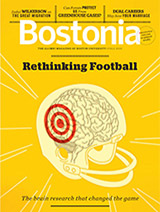









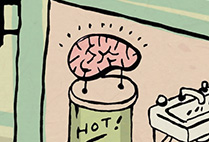

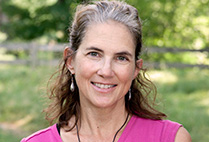







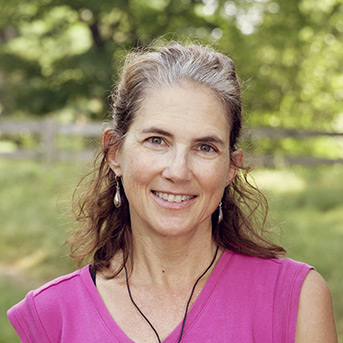

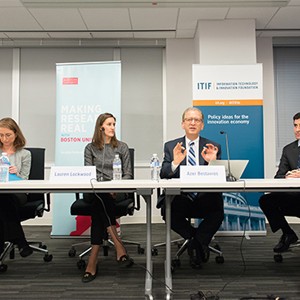

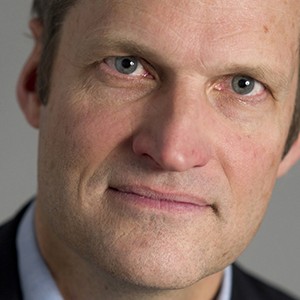
我
So, what your saying is that the working class should be blind to what the wealthy are doing to them and just be corporate stooges. And surrender they’re control of the federal government to corporations. Because the federal government does belong to the masses, not corporations! If it does belong to corporations that’s called fascism, not democracy! And fascism is very right wing and conservative and reactionary. We aren’t going to listen to a point of view that works against us economically and we won’t support it or go along with it or even try to understand it!
There is nothing progressive about Conservatism! Conservatism ONLY benefits the richest people and makes the masses suffer in poverty to make the richest richer. You are wrong! Theres a reason why the right is reactionary, and the left is revolutionary! Right and left are polar opposites. The left believes in peace and equality. The right divides and conquers. Dont blur the lines of English language definitions. The deceptive right wing confuses mixes up definitions to fool the masses into believing things that enable corporatism and income inequality.
I think the true meaning of liberalism is backwards compared to the rest of the world. Liberals are not elitists going to elite colleges and rich! That’s neo-liberal. Neo-liberal is economically conservative and socially liberal. economic Liberalism means wealth is spread out and very little to no poverty because of high taxation on the wealthy. That works! Social liberalism is common sense, everyone socially treated equal. Conservatism is very controlling for women and oppressive to people who aren’t white and promotes violence by increasing poverty and division, that’s social conservatism. Economic conservatism is to make the rich richer and poor poorer through divide and conquer tactics and oppressing labor movements!
Mindfulness or Conservative thinking?? as you allude to in the closing paragraphs is a scam to make us “appreciate the here and now” when our kids are hunger and and we worked 50 hours but its 40 after wage theft. It is defeatist thinking. Telling us it makes one “less happy” to “dwell” on starving kids in Africa has to be the most eurocentric revelation of ones morals on display in history. How about.. having a purpose beyond the next family vacation to Kenabunkport? I mean hey its not so far removed. So..
Liberals are simply the next step in human evolution?
Tounge in cheek article about conservatives implying that conservative thinking and behavior results in the fulfillment of the old adage “Ignorance is bliss.” I think this article demonstrates once again the need for liberals and conservatives to have subtantive debates about real world issues without trying to define each other in extreme or even simplistic ways. What ever happened to civil discussions among caring people with different views? We need to debate issues with “real facts” and let people decide what they believe is right or wrong in the world or in our country. We can appreciate each others differences in thought if we are willing to listen respectfully to each other without trying to define one another in some specific category. James
I disagree with the last 3 paragraphs of your opinion piece, as I have found them to be quite the opposite in my 55 years (30 of which have been politically active).
I have long called myself a social conservative. I think it is very important to have standards for behaviour (etiquette) and defined roles. The problems with this system is not that it exists, but the lack of flexibility and the value placed on them. Socially liberal policies lead to the rise of the choices you “must” make. This leads to just as many poor choices being made as good, the feeling of regret over the decisions you make, confusion of the public on how they should treat you and disappointment when other don’t treat you how you decided to be treated.
Though if the boundaries are too strict and/or roles have too much stratification of value it leads to a lack of autonomy that is detrimental to happiness.
There needs to be more discussion around finding a balance instead of so much effort being spent on trying make a utopia. As it stands now the social pendulum swings back and forth. People cannot make the right decisions all the time nor can they make the right decisions if they are not allowed to.
I must apologize, but I got about half way through this article and realized this person was so clueless about how normal people live and think that she was completely irrelevant. It really is sad to see someone that is so out of touch with reality that she is just never going to be able to relate to normal people. At least she can reside peacefully in some ultra liberal northeastern university and live out her life cluelessly, perhaps ultimately like a zoo exhibit as an about to be extinct human unsuccessful genetic deadend.
I’m as conservative as they come and while her writings were a bit out of my comfort zone, I thought she was measured and fair.
I understand your assessment, but I strongly disagree with it. If more liberal or progressive-minded people thought as she now does, we’d be a lot closer to bridging some of the gap that exists between us.
I suppose you could read her writings and assume condescension, but I don’t take it that way at all.
Yes, people are different, and some are relatively clueless, as you say, about others. I accept that I’ve had to introspect and analyze others’ behavior to make sense of it. But some readers of this article have said they also have had to do this.
Going along to get along is not a virtue, but the foundation of every problem we have faced in the past, and will face in the future.
p.s.
“Not care about global warming? Exploit and vilify immigrants? Hold men and women to different standards of sexual behavior? Dismiss those living in poverty? Enact legislation to help those who were already successful keep their wealth?”
As the saying goes, the left thinks if you disagree with them you’re evil. Or if not thinks it, at least chooses to say so because it’s easier that way.
I recommend reading Olivier Ballou’s short, easy-to-understand primer,
http://graphicguidetoconservatism.com
and then start reading some Daily Wire, Western Journal / Conservative Tribune, listen to some of the most well-known conservative podcasts, commentary shows, or educational videos such as Prager, Rush, Hannity, etc., and try reading some Milton Friedman, some Larry Elder, maybe Freedomnomics. I think if you do, you’ll find a lot more consistency among all these with the ideas in Ballou’s treatise on conservatism than with yours. Reading this, it seemed very coloured by non-conservative assumptions to me, made me think of Blake’s line about cleansing the doors of perception.
Classical liberalism is i.m.o. a lot further from progressivism than from conservatism in the west, probably b/c most conservatives these days are conservative of especially the sort of classical liberal ideals so fundamentally threatened by progressivism (and socialism).
Just want to point out that the entire ideology of conservatism can (and was) summed-up in the phrase “that government is best which governs least” (or, as you wrote in your article “Back off. I’m not hurting anyone else by doing x”). It has nothing to do with purity or prioritizing in-group members, and the original American conservatives *dis*respected authority so much that they fought a war and killed an estimated 24,000 of their own government’s soldiers…over *taxes!*
I think you may be a bit confused because the literal definition of “conservative” is a person who is resistant to change, while the political terms “conservative” and “classical liberal” refer to the ideology described in the first sentence of this post. The political term “liberal,” incidentally, refers to what was once called “republicanism;” an ideology centered around individual sacrificing their personal interests for the good of the state.
Neither system is better?
Please google “most conservative countries on earth”, then “most liberal countries on earth”. Then honestly tell me where you would rather live.
Lorne…..I think one mistake that is made is the use of the work Liberal in the context you apply I would argue that Communist and Dictatorial societies are called Conservative, but bears little if any resemblance to what we refer to as a Conservative politically in the USA
Yes I think you are right, but if you remove those countries and repeat the exercise I’m not convinced the result would change.
This was a painful read. The author treats American Preservationists as if they are a majority of Republicans. Ever heard of free-marketeers & libertarians? They can’t stand social conservatives. Republicans are merely co-belligerents against a common enemy.
I agree with this article, but would take it a step further. I think it’s because the way conservatives live and see the world is simply more natural (more aligned with mankind’s evolutionary history), full stop. Conservatives don’t have to continually pretend to be someone they aren’t ,in order to fit in with their group. They don’t have to pretend to care about things they have no reason to care about. They don’t have to pretend to like things they actually don’t like, or pretend to abhor things they actually do like. They don’t have to pretend to want things they really don’t want. They can just be their genuine, authentic selves, so of course they’re a lot happier.
This probably also lies at the core of why conservatives are often perceived as being more attractive than liberals, as well. Most people find genuineness and authenticity to be attractive traits, in general.
WH
While generalities do not do justice for the individual, I realize it’s practical application to understanding patterns and correlations and eventually obtaining wisdom from it at a 30K ft view. So with that, I’ll mention a few generalities that might corroborate some ideas in this article.
I’ve always thought the differences between libs and cons was very obvious, especially in regards to the values associated with daily priorities and social interaction.
Am I allowed to say that worldviews, particularly contrasting atheist/pluralist worldviews vs. Judeo-Christian worldviews easily fleshes itself out (as shown in this article) ?
是
This is not suggesting that conservatives live by their moral code any better than liberals live by theirs. Tis not true. Hypocrisy is prevalent in both and staying true to one’s own moral priorities is not hinged on social pressure alone. This does, however, suggest where the social & political priorities might come from.
The other two things I’ve got to mention then I’m done:
“City dwellers usually have bank and insurance accounts…”
This sort of comment is telling and springboards my next two points about all of this.
Two BIG reasons why liberals and conservatives don’t agree with each other is because
1) Liberals don’t have the slightest idea what rural, conservative living looks like, much less the facts, interpretations of those facts & the principles used by conservatives to draw the conclusions they do. I’ve seen this in the flesh just how out-of-touch liberals are, particularly “city dwellers”, with the majority of the values, ideas & activities associated with America and conservatism. Not only do liberals not know these things on a comprehensive level but it leads to getting the conservative position wrong and causes liberals to form an inaccurate summary on conservative values and in their anger, conflate the conservative position with something else, usually a malevolent idea, to help “win” the argument. It’s a relentlessly broken record these days.
2)
Could you imagine how frustrating it would be to have searched for truth, found the albeit unpopular position, and agreed with its premise and interpretation after much research only to find opposition that not only severely misunderstands your lifestyle and values but also wrongly accuses you through conflation of ideas, half-truths and smear campaigns? Would you want to have anything to do with people that did such things to you?
Precisely why the red areas are entirely rural and the blue areas are in the top 15-20 cities of america…
What I want to see is liberals and conservatives come together and fight this intolerant, Leftist ideology that has almost taken over the DNC and “progressive” politics.
我
I read an article a couple years ago called A Bitter Pill, why health care costs are crippling America, published in Time magazine.. Something like that anyway. It was a good read. I believe in government health care now. Well honest government healthcare.
As long as there are politicians, I’m not sure there will ever be honest healthcare. And certainly if the parties cannot lay things aside and work together to fix this issue. Right now the Dems main focus is to make sure Trump fails. Like cutting off their nose to spite their face. Reps are just as guilty, so I’m not pointing fingers. But come on. Why can’t we as a population start getting smart and realize we are not slaves to Washington. Especially since social media has come into power. But shame on us because we don’t use it constructively. All we care about is defeating the other party. Yes people like you and me. We are not the crooks. We are the victims. The show from Washington is to keep us focused on hating each other so that absolutely nothing ever changes.
My point is that in that story two things are revealed. Pharmaceuticals are high because both Dems and Reps have screwed the US on this issue. Do the homework. The healthcare lobby owns both sides of the aisle. Both sides.
Because we are so entrenched in our ideologies, those in Washington get the last laugh. Honestly that’s how things work there.
Because the media, liberal and conservative keep the issues hot and in our face, well we keep thinking the enemy is the other party. They are your neighbors, your friends, your parents, your kids. Just have a family reunion.
The revolution that will survive and cause things to change is the one that surrenders their own objectives for those of others. The only thing that will get Washington to listen and actually support the people and not special interests is votes and action. I can’t buy anybody so the odds are against me and most every American. But you get 100 Million followers on Facebook or Youtube pounding the drums of change and you’ll make a difference. Just pick those things that are not hard to sell. Like heathcare. Who wants to continue to pay the highest prices on pharmaceuticals for same drugs on the entire planet?
Most know neither the dems nor reps are on our side. They are just so afraid of the other side. Unfortunately both sides are justified in there fears.
I’m replying to my post. I’d like to invite any Dem or Rep to please answer why neither party will tackle pharmecuetical prices. It’s 20% of healthcare cost for every American. This doesn’t seem like much but it’s 100% unnecessary and completely undeserved. The ONLY reason this is the way it is, is because of our elected officials.
Do an internet search and ask the question why Americans pay as much as 7 times more for medications. You’ll get some interesting insight.
So why are American voters focused on the stupid parties to fix an issue like this and not assigning blame to the source. Lobbies. The healthcare lobby for instance.
We sit at home struggling to write check after check to cover medical bills while our elected officials do a bate and switch.
Trump “I’m lowering drug costs”…. what a joke. At least Obama didn’t make that a promise. He knew who called the shots. Ta crump is learning. That’s why the new GOP healthcare bill doesn’t do anything to lower costs. Nothing.
Once we as Americans realize not every issue is right or left. Not Trump or Hillary. But because people are bought, politicians are bought and parties are bought.
Healthcare is probably the biggest single issue in most families. The costs are rising at 15% per year under Obama and they will continue under Trump. I promise you.
Please get your eyes off the pawns and on the real puppet masters.
it wouldn’t be so completely disgusting if it wasn’t for the hypocrisy. Liberals are supposed to be against shaming women, but they think nothing about calling Melania Trump the most vile names imaginable, talking as if pictures like the ones you see in Vogue are the equivalent of a porno. As a woman myself, it makes me very upset. Besides, didn’t Liberals used to be all about questioning authority? So how come now, anyone that questions Obama is suddenly a bad guy? Obama says he is Christian; Its got to be true. Even though there is no record of a baptism, and he is supposed to be Southern Baptist. Does it matter? Oh yes. Lying to the voters matters very much. When did liberals become so against liberty?
You will forgive me, But I simply have no trust of a group of people who have openly stated that the ends justify the means.
this way of throwing around generalizations is exactly against the author’s point. it is not productive.
What was the thing that caused you to view harmonious behavior in groups as a good thing when you were in China? That’s typically a collectivist thing to favor, isn’t it? So wasn’t that judgement already a sign that you were beginning to embrace the concept of collectivism?
Was there a time before that but after you moved to China when you either ran low on money, or maybe was it something about China itself that changed your thinking? Jonathan Haidt talked about how he used to despise conservative thinking himself before he studied in India. I’m wondering if there is something about changing one’s in-group that affects political opinions. Or maybe it’s always being treated as an outsider. What do you think?
Applause and admiration to Julianne Weinman and Nigel Assam for their articulation of my thoughts.
Approaching 70, I remember being young and idealistic. Somewhere in my 30s, idealism began to be replaced by realism.
Today my personal philosophy (http://www.stevenkohn.net/where_I_stand/) clearly isn’t progressive but also isn’t conservative. I suspect there are many more like me.
我
I’d say Caldwell-Harris’ personal conclusions stem less from real insight than from being the “favorite liberal” of the conservatives she socializes with.
You confusing Democrats/Republicans with liberal/conservative.
This comment was a lot better than the article.
一个
Dear Mr. Bennett, I appreciate our difference and even though I wanted to read your entire reply, I stopped at liberals views on personal freedom. It is difficult for me to understand foregoing freedom for a collective thought.
History has shown that any attempt for collective thought has resulted in mass murder and unspeakable carnage as well a financial riches for those who have successfully persuaded others to follow.
I am neither conservative or liberal…. I am a free thinking human who chooses to make my own decisions and who chooses not to follow a morality that subjugates my morality.
I feel the exact same way you do… except from the exact opposite side. I am about as far right as you can get. I am always so frustrated watching two liberals argue with two conservatives on TV not getting anywhere. I have said for years, I would love to debate a liberal and have an intelligent conversation without the yelling. Every time I have a conversation with someone who comes to the left, they don’t seem to have the intellect or the life experience to keep up with the conversation. I have always been conservative and the more life and business experience I get, it just solidifies by beliefs. I don’t need to debate over theory or something I just heard on TV, I have real life to prove what is right and what is wrong.
As evidence of lack of respect for truth, this excerpt from Rush Limbaugh’s take on the Chris Christie GW Bridge affair:
“It’s just every Republican who has entered the fray defending Christie has to put a caveat out there ‘if he’s telling the truth.’ Now, if there were a fervent ideological foundation, if there was a substantive reason of believing in Governor Christie, then whether he lied wouldn’t matter. They’d be out there defending him left and right just to make sure the Democrats don’t get away with this.”
I’d just like to point out an additional fact. Conservatives donate more money to charity than liberals, according to several things I’ve read. We are happy to give our money to people and organizations that we believe need it, while liberals want to give our money to whomever THEY think needs it.
As far as financial inequality is concerned, the constitution guarantees equal opportunity, not equal wealth. Most very rich people started out not rich and worked hard to get rich; very few inherit their wealth. Why are we supposed to begrudge hard workers their wealth? I retired early and have been relatively poor ever since. It was my choice, and I am happy for others to work long, long hours and become rich.
女士
Nigel, you’re still talking about points on which liberals and conservatives disagree (should the wealthy pay more taxes). Can we get to a new place by discussing the issues on which most liberals and conservative agree?
One of these agreements is that most people would prefer to live in a country where wealth is distributed more equally than is the situation in the U.S. Can conservative ideals, such as minimizing government involvement, be used to move the country in the direction that most Americans (including most conservatives) favor?
Other cultures have found ways to push back against wealth inequality without government involvement.
Some traditional cultures use shaming as a way to reduce inequalities. Wealthy individuals who show off their wealth are mocked and humiliated. Such mocking frequently works well to prevent egregious inequality (of course there is always some inequality).
Other ideas?
Re: One of these agreements is that most people would prefer to live in a country where wealth is distributed more equally than is the situation in the U.S. Can conservative ideals, such as minimizing government involvement, be used to move the country in the direction that most Americans (including most conservatives) favor?
I would suggest that any conversation about this issue specify exactly what we’re talking about. A CEO vs a janitor? A 3rd grade teacher vs a computer programmer at Apple? Private vs public employees? I think government is a big part of the problem in that people/corporations with the big bucks can have far more influence that the guy working for minimum wage at the grocery store. Even as a union worker, the union comes first. Could a flat tax possibly reduce that influence inequality?
Education. Inner city and rural schools often offer a substandard education. Why such a rebellion against charter/home schools? A bad education can (not always) substantially reduce opportunity equality.
As for other cultures finding ways to push back against wealth inequality without government involvement. Is shaming and mocking really effective? Probably not. It may reduce the flaunting of wealth, but that does not reduce a bank balance. And if it works at all, it would probably only work in small groups or with just a few individuals. In the United States I see it as mean and disrespectful. Clinton’s basket of deplorables turned out not to be helpful.
Thanks for the read. I especially enjoyed the comments.
I do believe we are discussing an issue which (most) liberals and conservatives can agree on – the expansion of the middle class and the increase in wealth for all. (You will always have some inequality, even in wealth and there will always be the poor).
The disagreement is how to achieve this goal. I do not think that conservatives are calling for non-governmental involvement at all in some things. There are people who genuinely need social assistance, but it should not be a lifestyle that carries on for generations.
Again, I ask, how is the government to distribute wealth? What statistics will they use to inform them of equal distribution and when it is achieved? And what is equal distribution of wealth? When that happens, are we then to live in a static economy? Will there be no upward mobility? This is, in effect, government control.
I do not believe in flaunting one’s wealth; it is bad manners, to say the least. But why should we shame others if they have worked hard and decide to buy a large house, a big yacht, a fancy sports car, and fashionable accessories? Why put a stigma or a scarlet letter upon someone who has worked hard, or even on those who inherited wealth, just because they can afford a lifestyle others would like to achieve? The root cause of such shaming is envy.
I don’t believe in mocking anyone for his or her wealth. If wealth is flaunted, that’s the other person’s choice. And what is flaunting of one’s wealth? Just because a person buys a yacht, a big house etc., that does not mean he or she is flaunting wealth. It is how the person carries himself or herself, and how he or she treats the poor among us that is more important. And we never know how much that person may be giving to the poor behind his or her wealth.
We should stigmatize the flaunting of wealth because it is a waste of resources. It also is a cost that if one did not have would free up resources for other more productive ventures.
I suspect that the real reason liberals are less happy is simple: the focus on fairness and justness caused them to see everything that is wrong in the world. To them the world is a place that needs fixing and is never good enough.
It cannot be fixed. An imperfect machine with imperfect parts.
Nigel,
But liberals most definitely do regard the Republican Party as having enacted legislation to help the successful keep their money; and “conservatives” are identified by liberals as republicans, even though websites like this one criticize the GOP: http://www.theamericanconservative.com/
What should be done about the highly unequal distributions of wealth in this country? This video documents it; other experts identify that it is precisely legislation that has created this enormous inequality — but neither conservatives nor liberals endorse this (and 9 out of 10 Americans are shocked by it).
http://www.upworthy.com/9-out-of-10-americans-are-completely-wrong-about-this-mind-blowing-fact-2
So this is a point of agreement between conservatives and liberals (apparently).
I know that liberals regard the Republican Party as having enacted legislation to help the successful keep more of their money. But who is to determine “wealth”? Legislation that allows for all people who work to keep more of their earnings, whether liberal or conservative, Republican or Democrat, is rather fair, for lack of a better way of putting it.
(The Republican Party is not a conservative party; it is a political party. The essence of conservatism is explained by Russell Kirk here – http://www.kirkcenter.org/index.php/detail/essence-1957/)
Democrats have the support of most of the entertainment industry – actors, producers, directors, musicians, et al. As well, you’ve got billionaires such as Larry Ellison, Bill Gates, George Soros, Peter Lewis, and Warren Buffett. The myth that the Republican Party is the party of the rich is just that. The Democratic Party can also be considered the party of the rich. Both parties have wealthy supporters.
If wealth is to be had by more, the best way to do so is to allow for the wealthy – whether Democrat-leaning or Republican-leaning – to be able to create jobs. We must allow for an environment in which creation is valued. Jobs will be created when the wealthy invest in businesses and start-ups if they believe they will not be taxed heavily for doing so, and they believe they can keep the rewards of what they have risked.
But legislation to cut taxes does not favor only the wealthy; it favors all Americans who pay taxes. This is a good thing. If I, who am in no way wealthy, am allowed to keep more of what I earn, I will save it, invest it, donate to a charity, or whatever I choose to do with it. All Americans would be free to do so. That is the most logical and ethical way to accomplish “wealth distribution.”
In the video, a CEO is portrayed as earning a whole lot more than the average worker. But it is the shareholders in a company who decides if the CEO is worth his salary. He also has a great deal more responsibility than the average worker, and so must be compensated accordingly.
Shall we, as a society, decree that the government should put a limit on how much someone in the private sector earns? What number is the limit?
Ask someone who makes $2 million if he thinks he’s wealthy; he may answer no. There is always someone making more. If the government declares that $250,000 is cutoff, what is the determining factor? If the government then decides to tax earnings $250,000 and above, but find that they need more, they will necessarily go down to $100,000. It will continue downward. The wealthy already pay a large share in taxes, almost 40%.
If there is a cap on income the wealthy would know when they are wealthy. There would not be very many over income taxes because they would reinvest the money in their company/community for their betterment over government waste. It may even eliminate the need for social welfare because of the excess resources going around. It would cause the labor force to care more about the jobs they do because higher productivity would be rewarded with a likely increase in money or the wellbeing of there community.
I enjoyed reading this article very much and congratulate the author on her honesty and courage in admitting certain prejudices, and her newfound patience to engage others with whom she might disagree politically.
We often look at the other person as a political person, instead of a human being, neglecting the human behind the words. (I have been guilty of that.) I interact with many people with whom I disagree politically, but we have other interests that go beyond politics. The late William F. Buckley was famous for having friends of the opposite political persuasion.
The author stated in her article that she held in contempt those conservative values such as not believing in global warming, unequal treatment of men and women, exploiting and vilifying immigrants, etc. I would respond that those are not conservative values, neither are they liberal values if you believe in global warming, you treat women and men equally, etc. They are human values, treating people with dignity.
As for global warming, for me, it is a question of the honesty of the “settled science”, not a conservative-liberal value.
Conservatives do not dismiss those living in poverty, nor do they enact legislation to help the successful keep their money. I do not even think of those two actions as either conservative or liberal. It is a belief that if one works hard and earns his or her own money, one ought to be able to enjoy the fruits of his or her labor, as the saying goes. Of course, taxes must be paid, but it is the amount that is the crux of the issue. Many conservatives do want to help the poor and believe that a job – the discipline of work – is the best way to better one’s self. There are many who do genuinely need some form of government and community support, and there are many conservatives who donate both time and money to certain church or neighborhood organizations to help the poor.
Edmund Burke, considered by many to be the father of modern conservatism, would never have called himself a conservative, and I do not think the appellation existed in his lifetime, at least in the way how we understand it now. He would have considered himself a classical liberal.
Classical liberalism is the mother of what is considered traditional conservatism (the strain I myself adhere to). Milton Friedman, the highly respected economist, considered himself a classical liberal.
T.S. Eliot has a well-known quote: “Conservatism is too often the conservation of the wrong things, Liberalism a relaxation of discipline; revolution a denial of the permanent things.”
I just read with great interest your Bostonia piece “How a Liberal….” Although now employed as a heath care analyst, I was trained in anthropology and have often found myself dismissing much of academic psychology as too thoroughly ensconced in Western European assumptions about human relationships and evaluative processes. Your work is remarkably refreshing!
Your article brought two trains of thought to mind:
A few years ago, while my wife and I were traveling through Cambodia, we had sadly too many conversations with individuals who had lost family members during the Pol Pot “Killing Fields” era. I always asked them how they coped with their grief, and whether they sought out any therapy or counseling. The answer was not even a ‘no,’ but a total lack of comprehension of why an individual would do such a thing. In their world-view, traumatic events were to be transcended via spirituality and meditation. Their Buddhist teachings set as life’s goal to move on to a higher plane, not to fall backwards to a place of pain. Were they to speak to anyone, it would most likely be a Buddhist monk who could advise them in ways to strengthen their focus on what is to come, rather than what has already happened. I was struck by how different this approach is from the endless delving into past emotions and memories that is commonplace in psychotherapy here in the US.
我
Anyway, thanks for the thought-provoking article. I’m glad to see psychology is broadening its perspective.
I suggest people read Chis Hedges’ book review on Jonathan Haidt’s book. Here is the link to the review: http://www.truthdig.com/arts_culture/item/the_righteous_road_to_ruin_20120628
The main problem I have with people like Haidt is they attempt to take labels, “conservative” and “liberal,” and give them singular meaning, or for that matter, any meaning at all. It is the 24/7 version of MSNBC v. Fox, in which every idea is a manifestation of “liberal” or “conservative” thinking. The labels are intended to polarize and define which “team” the viewer needs to support. Less thinking, more emotion.
The labels “liberal” and “conservative” are akin to the labels “capitalism” and “socialism.” They are emotionally charged words intended to heard the masses one way or another. Single payer, food stamps, low income housing are labeled “socialism” to create a lightening rod of opposition amongst Republican followers. But do you ever hear anyone call fire departments an example of “socialism”? No, because the political elite have no interest in condemning a group we in fact are taught to revere. There are so many other examples of “ism” labels–environmentalism, communism, feminism, etc.–that are used to accomplish the same thing. Make sure people stick to their emotional formation of opinions and fail to engage in any critical thinking. The reality is we need more thinking about policies, not less. And those who think less about NIMBY issues are in fact the problem.
My greatest fear is the failure to develop critical thinking of institutions that have, quite frankly, failed us. Blind allegiance to the “tribe” is very dangerous. Is believing the myth of war rather than the reality of war a “liberal” or “conservative” ideal? And if you believe in the myth of war, are you a happier person than the person who attempts to understand the reality? And is being happier by believing the myth a good thing for the hundreds of thousands of dead/wounded Americans/civilians in foreign countries who have suffered because of the perpetuation of this myth?
What we really need in this country is a huge dose of critical thinking about institutions that have failed us. The military industrial complex, NSA, private health insurers, private financial industry, corporate CEOs, Congress, etc., care little about society and a whole lot about their own special interests. The folks that head these institutions care not about society as a whole, but their own special interests, typically financial interests.
Haidt may have identified the problem, but he offers no solution. Going along to get along is not a virtue, but the foundation of every problem we have faced in the past, and will face in the future.
Thanks for making me think.
I loved reading this! As a liberal living in a tiny community of southern conservatives, I’ve had just this kind of conversation. After the election last year, I stood at the end of a red-dirt road and talked for half an hour about the election with one of my neighbors. The big picture, global concerns of the liberals seem so out of touch with the day-to-day realities of living very far from fuel stations, transportation access, health care, internet access, and a vast pool of information options. It doesn’t help that liberals appear to reject family by living so far away from each other, while the close proximity of family is how conservatives survive. Even the idea of a farmer’s market seems so left-wing and almost laughable. Why would you need a farmer’s market when everyone already exchanges and shares the bounties of their fields?
Paul, thanks for the pointer to that special issue on the the biology of cultural conflict. I assume you mean the first article, with the finding “that greater orientation to aversive stimuli tends to be associated with right-of-centre and greater orientation to appetitive (pleasing) stimuli with left-of-centre political inclinations.” This doesn’t necessarily negate survey findings that conservatives report being happier. Still, at the least it makes the point that my brief paragraph is over-simplified. My hope is that readers who feel that this can’t be the full story will delve deeper into the topic. All are invited to post here their ideas about why there appear to be several types of patterns of correlations between political ideology, physiology, and self-report data.
I suggest taking a look at a few of the articles in this issue (http://rstb.royalsocietypublishing.org/content/367/1589.toc). By investigating the physiology and neuroscience of morality and politics, their findings are a little different than what you summarize 3 paragraphs up.